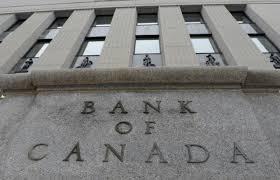According to economists, Canada’s central bank has announced plans to speed up a series of hefty hikes to combat inflation, raising the risk of the economy entering a recession, but worth it if it prevents rapid price rises from being entrenched.
The Bank of Canada hiked its policy interest rate to 1.5 percent from 1.0 percent last week, marking the bank’s second consecutive 50-basis-point increase, and indicated it was prepared to move “more forcefully” if necessary to combat “galloping inflation,” which is already at a 31-year high.
That could mean more moves before pausing, increases of more than 50 basis points, or an end rate above neutral – the 2% to 3% range where interest rates neither stimulate nor restrain growth, according to Deputy Governor Paul Beaudry.
Economists believe that a strong, front-loaded attack by the Bank of Canada will slow domestic demand and prevent rising inflation from spiraling out of control.
However, it is a delicate balance, and any misstep may severely stifle the economy at a time when major service sectors, such as travel, are recovering. They went on to say that in the worst-case scenario, Canada might be thrown into a recession.
“The recession risks are high in my opinion because we are looking at such a strong monetary policy response to bring inflation back to target,” said Andrew Kelvin, Chief Canada strategist at TD Securities.
“They have to respond rapidly, which I believe makes predicting the effects of rate hikes on the economy much more difficult.”
The gap between 2- and 10-year bond yields in Canada was 14 basis points on Wednesday, the tightest spread among Group of Seven countries, indicating that investors are betting on an economic slowdown.
The housing market, which is a major driver of the Canadian economy, has dropped significantly since its high in February, as interest rate hikes have reduced purchasing power. And, so far this year, the country’s export volumes are down 4.9 percent, a drop camouflaged by high commodity prices.
Nonetheless, inflation is at 6.8% and expected to climb higher, Canada’s unemployment rate is at a historic low, and businesses are reporting more demand than they can meet, reinforcing the case for a strong reaction.
“If you do a little too little, inflation will continue,” Beaudry said last week. “You might send the economy into a recession if you do too much. So we’re aiming for the middle ground.”
The Bank of Canada’s policy rate is expected to rise to 3.25 percent by the end of the year, the highest level since 2008 and three full percentage points higher than January’s 0.25 percent. During the 2017/18 tightening cycle, the interest rate peaked at 1.75 percent.
Canada’s economy, which has the highest amount of household debt in the G7, could be thrown off by this rapid pace. In April, home sales fell 12.6 percent from March, with the full price impact of quickly dropping demand yet to be felt. However, economists believe the Bank will be willing to risk a rough landing if it can keep consumer expectations in check.
“The Bank of Canada’s previous messages indicate that it will be unconcerned about the second consecutive double-digit reduction in home sales in May,” said Stephen Brown, senior Canada economist at Capital Economics.
“As a result, we are afraid that it may pursue a more aggressive policy tightening strategy than is eventually warranted, driving house values considerably lower and triggering a serious recession.”
When asked if the bank would be willing to orchestrate a recession, Beaudry assured reporters that the bank would eventually do what was necessary.
“The bottom line is that inflation will return to 2%. We’ll do everything it takes to get there “he stated

















